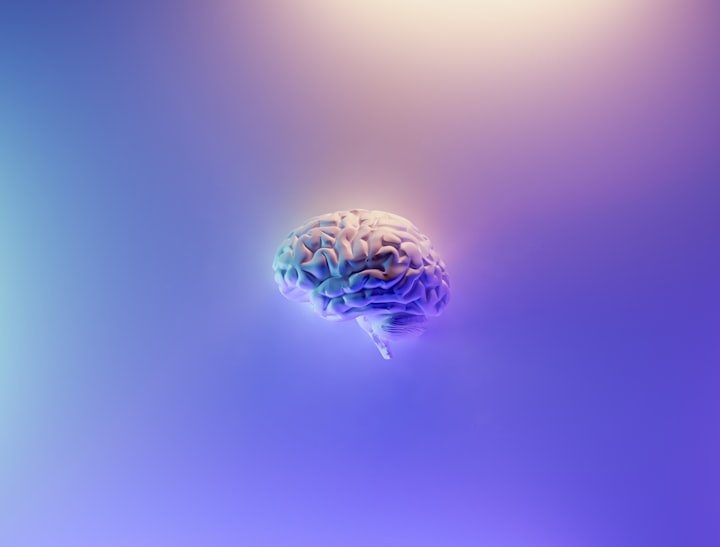The Brain Never Gets Tired
A Deep Dive Into the Working of the Brain and How to Enhance Its Powers

The feeling of fatigue after a cognitively exhaustive day is quite ubiquitous in people. It is a radical change in the kind of "tiredness" experienced by the people in the past centuries. Surprisingly, your brain never gets tired. From where does the feeling of 'burnout' arrives after a workday? Is it the effect of physical fatigue that ensconces inside neurons? To add some weight to our following assertions, I would like to present a snippet from the book Deep Work by Cal Newport -
One of the chief things which my typical man [or woman] has to learn is that the mental faculties are capable of a continuous hard activity; they do not tire like an arm or a leg.
This provides an implicit notion towards the "Theory of Evolution." The revolutionary book of Yuval Noah Harari - Sapiens explains that Homo Neanderthal started walking on two legs to get a faraway vision for predators. We evolved from monkey-face-four-leg species into two-leg-walking humans after a lot of persistence. We can trace this analogy back to our minds too, we were never really this intellectually capable of constructing an airplane, but we evolved into something better.

A lot of insidious effects were being experienced, and millions of years of evolution have made us today what we are. This indicated the radical shift we have experienced in the power of our brain. It has no limits. It can be rewired or reconstructed in any way (literally). Scientifically, we still know very little about the marvelous power of the subconscious mind, which has been extensively described in the book "Power of Your Subconscious Mind." The main verdict of the book is "You can be whatever you believe." This belief is what has brought us (homo sapiens) to the top of the intellectual hierarchy.
So, it means that you can be extensively productive even after an exhaustive day, and the bed-time social media, Netflix, or any other brain-draining activity will not be necessary to make you feel serene. It's not another hotshot web-series episode that recharges you for the next day. It's just an illusion, albeit a persistent one. Let's break it down and grab the roots.
"But I Feel Relaxed After Scrolling Through My Feed"
Yeah, you might feel relaxed, and that's how social media works. With the cajoling power of colorful images, you are lured into the web, but it is just wasting a waste of time. I don't want to sound denigrate, but yes, it's true. Let's take an example, Alex came back from his job as a software developer. He thinks he is physically and mentally exhausted after a long day of sitting and forming complex algorithms. But as per Benett (and considering it as gospel), neurons do not tire like an arm or a leg. It's not as simple as it sounds, but Alex feels tired just because he thinks he is tired.
Alex might be tired of solving complex algorithms, performing time taking calculations, or prolonged sitting, but he is not mentally exhausted. He might not be able to solve more complex algorithms but can simply understand the different scientific theories, can start learning a new musical instrument, or any other cognitively demanding skill.
Cal Newport, who is an associate professor of computer science at Georgetown University, supports this argument by stating his habit of reading books as a leisure activity. I am pretty sure that he is not talking about some teen-romance love novel. You can catch a glimpse of what Mr.Newport refers to as his bedtime books here.
His collection includes non-fiction self-help and personal growth books that still require a lot of focus than binging a web series. What is different in him? Is he a robot with cutting-edge artificial intelligence? I don't think so. He is a rational human being who analyses his habits and explore the different way. You don't have to follow the majority, and just because everyone is doing it doesn't justify its correctness.
Whenever you find yourself on the side of the majority, it is time to pause and reflect.
This Mark Twain quote perfectly explains the thought. There is a need to reflect and analyze the activity you are doing. Breaking the stereotypes and finally succeeding in finding something new is itself a great experience. One thing that can help you follow a productive schedule even after your workday is Adaptation.
Adaptation
Push the limits of your brain to the extreme, and we know from our past discussion that our brain has tremendous powers. You can work on the new business idea even after a 'mentally' exhaustive day. As stated in the legendary book of Napolean Hill, "Think and Grow Rich" -
The mind is a creature of habit. It thrives upon the dominating thoughts fed it.
If the mind is fed with the thought of its extreme powers, you'll start to experience the results in life. Developing the ability to perform productive activities even in your leisure time is just a matter of persistence and adaptation. In the upcoming era of a distracted world, it seems to be a dire need for the youth to cultivate such habits.
Following a schedule that involves doing something cognitively demanding after the workday (like reading a book, solving puzzles, mastering a new skill, etc.) not only develops a new habit that can help you at a financial, personal, or spiritual level but also pushes the limits of the brain. Reading a new science book (like Chaos: Making a New Science, which targets the laymen audience) for thirty days can reveal a new meaning of peace, leisure, and calmness for you. There is a unique replenishing power in the deep state of mind, and once you feel this, you'll have a new way of spending free time.
You need to break the chains of bad habits before it become inescapale. A quote by Warren Buffett completely concludes my point -
Chains of habit are too light to be felt until they are too heavy to be broken.
Don't let these chains imprison you. Don't let them stop you from being great.
Think.Analyze.Act.
About the Creator
Saral Verma
We ain't ever gettin' older.
Medium profile - https://saralverma.medium.com/
Enjoyed the story? Support the Creator.
Subscribe for free to receive all their stories in your feed. You could also pledge your support or give them a one-off tip, letting them know you appreciate their work.






Comments
There are no comments for this story
Be the first to respond and start the conversation.